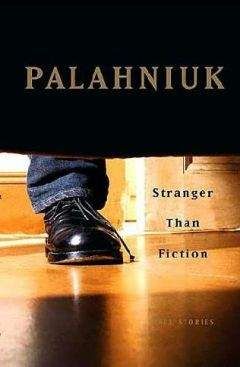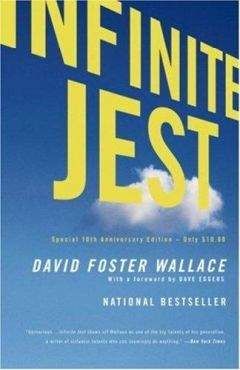I saw the value. I admire those people and the job they do.
But by hiding the hardships they endure, it seems the Navy cheats these men out of the greater part of their glory. By trying to make the job seem fun and no-big-deal, the Navy may be repelling the people who want this kind of challenge.
Not everybody is looking for an easy, fun job.
A friend of mine lives in a «haunted» house. It's a nice white farmhouse in the country, surrounded with gardens, and every few weeks he'll call in the middle of the night to say, "Someone is screaming in the basement. I'm going down with my gun, and if I don't call you back in five minutes, send the police!"
It's all very dramatic, but it's the kind of complaint that smells like a boast. It's the psychic equivalent of saying, "My diamond ring is so very heavy." Or, "I wish I could wear this thong bikini without everyone lusting after me."
My friend refers to his ghost as "the lady," and he complains about not getting any sleep because "the lady" was up all night, rattling pictures on the walls and resetting the clocks and thumping around the living room. He calls it "dancing." If he's tardy or upset, it's usually because of "the lady." She shouted his name outside the bedroom window all night, or turned the lights on and off.
This is a practical man who's never believed in ghosts. I'll call him "Patrick." Until he moved out to this farm, Patrick was like me: stable, practical, reasonable.
Now I think he's full of shit.
To prove this, I asked him to let me house-sit his farm while he was away on vacation. I needed the isolation and quiet to write, I told him. I promised to water the plants, and he went off and left me there for two weeks. Then I threw a little party.
This man, he's not my only deluded friend. Another friend-I'll call her "Brenda"-says she can see the future. Over dinner, she'll ruin your best story by suddenly drawing a huge gasp, covering her mouth with her hand, and rearing back in her chair with a look of wide-eyed terror on her face. When you ask what's wrong, she'll say, "Oh… nothing, really." Then close her eyes and try to shake the terrible vision from her mind.
When you persist, asking what's scared her, Brenda will lean over the table with tears in her eyes. She'll take your hand in hers and beg you, "Please, please. Just stay away from automobiles for the next six years."
For the next six years!
Brenda and Patrick, they're odd but they're my friends, always hungry for attention. "My ghost is too loud… I hate being able to see the future…"
For my little house party, I planned to invite Brenda and her psychic friends out to the haunted farmhouse. I planned to invite another group of stupid, ordinary friends who aren't troubled with any special extrasensory gifts. We'd drink red wine and watch the mediums flit around, lapsing into trances, channeling spirits, doing their automatic writing, levitating tables, while we laughed politely behind our hands.
So Patrick was gone on vacation. A dozen people arrived at the farmhouse. And Brenda brought two women I'd never met, Bonnie and Molly, both of them already swooning from the ghost energy they felt there. Every few steps, they stopped, swaying on their feet and grasping for a chair or railing to keep from falling to the floor. Okay, all my friends were swaying a little. But for the sane ones it was the red wine. We all sat around the dining room table, a couple lighted candles in the center, and the psychics went to work.
First they turned to my friend Ina. Ina's German and sensible. Her idea of expressing emotion is to light another cigarette. These mediums, Bonnie and Molly, they'd never met Ina before this moment, but they took turns telling her how a woman's spirit was beside her. The woman was named «Margaret» and was showering Ina with tiny blue flowers. Forget-me-nots, they said. And suddenly Ina put down her cigarette and started to cry.
Ina's mother had died of cancer several years earlier. Her mother's name was Margaret, and every year Ina sprinkled forget-me-not seeds on her grave because they'd been her mother's favorite flower. Ina and I have been friends for twenty years, and these are details even I didn't know. Ina never talks about her dead mother, and now she's weeping and asking for more red wine.
Having reduced my friend to a mess, Bonnie and Molly turned to me.
They said a man was near me, standing just over my shoulder. He was, they both agreed, my murdered father.
Oh, please. My father. Here, let's just take a little break from the nonsense.
Anyone could know the details of my father's death. The strange, ironic circle. When he was four years old, his own father had shot his mother, then stalked my father around the house, trying to shoot him. My dad's first memories are of hiding under a bed, hearing his father call and seeing his heavy boots walk past, the smoking barrel of the rifle hanging near the floor. While he hid, his father eventually shot himself. Then, my dad spent his life running from the scene. My siblings also say he spent his life trying to find his mother by marrying woman after woman. Always divorcing and remarrying. He'd been divorced from my mother for twenty years when he saw a personals advertisement in the newspaper. He started dating the author of the ad, not knowing she had a violent ex-husband. Coming home from their third date, they were surprised by the ex-husband, who shot them both in the woman's house. That was in April of 1999.
Really, these details have been published everywhere. The whole mess has gone to trial, and the murderer is sentenced to death. Bonnie and Molly needed no special gifts to know any of this.
But still they persisted. They said my father was very sorry for something he'd done to me when I was four years old. He knew it was cruel, but it was the only way he could think to teach me a lesson. He was a very young man at the time and didn't realize he was going too far. Bonnie and Molly, they held hands and said they saw me as a small boy, kneeling beside a chopping block. My father was standing over me, holding something wooden.
"It's a stick," they said, then, "No, it's not. It's an ax…"
The rest of my friends were quiet, Ina's weeping had shushed their giggling.
Bonnie and Molly said, "You're four years old, and you're deciding something very important. It's something that will shape the rest of your life…"
They described my father sharpening his ax and said, "You're about to be…" they paused, then said, "dismembered?"
Ina's still over there sobbing. The silly cow. I pour another glass of wine and drink it. I pour another. I tell Bonnie and Molly, our guides to the ghost world, to please tell me more. I smirk and say, "No, really, this is fascinating."
Then they say, "Your father is very happy now. He's happier now than he ever was in his life on earth."
Oh, isn't that always the case? A little scrap of comfort for the bereaved. Bonnie and Molly are just the same sort who have preyed on grieving people throughout history. At best they're misguided, deluded fools. At worst, manipulative monsters.
What I don't tell them is, when I was four years old, I slipped a metal washer around my finger. It was too tight to remove, and I waited until my finger was swollen and purple before I asked my father for help. We'd always been told not to put rubber bands or anything tight around our fingers or we'd get gangrene and those bits would rot and fall off. My dad said we'd have to cut the finger off, and spent the afternoon washing my hand and sharpening the ax. The whole time, he also lectured me about taking responsibility for my own actions. He said that if I was going to do stupid things, I should be ready to pay the price.
That whole afternoon, I listened. There was no drama, no tears or panic. In my four-year-old mind, my father was doing me a favor. It would hurt, chopping off my fat, purple finger, but it would be better than the weeks of letting it rot.
I knelt beside the chopping block, where I'd seen so many chickens meet a similar fate, and put out my hand. If anything, I was wildly grateful for my father's help, and resolved never to blame other people for stupid things I'd done.
My father swung the ax, and of course he missed. We went inside, and he used soap and water to remove the washer.
It's a story I'd almost forgotten. Almost forgotten, because I'd never told it to anyone, never re-remembered it by saying it aloud for anyone's reaction. Because I knew other people wouldn't understand the lesson. All they'd see is my father's actions and label it cruelty. God forbid telling my mother-she'd explode with righteous rage. Like my father's earliest memories of the shooting, that day with the ax is my oldest memory, and for thirty-six years it has been my secret. And my father's. And now these silly women, Bonnie and Molly, are telling it to me and all my drunken friends.
No way was I going to give them the satisfaction. While Ina sobbed, I drank more wine. I smiled and shrugged, saying it was all very interesting prattle, nevertheless it was nonsense. A few minutes later, one of the women fell to the floor, ill, and asked for help getting to her car. The party broke up, and Ina and I stayed behind to finish the wine and get blotto.
It was disappointing, really, that stupid party. Watching my friends take this nonsense so seriously. "The lady" never did appear, but Patrick will still call me to complain about his silly ghost problems. Brenda will still shudder and go pale before she announces her goofy premonitions. As far as Bonnie and Molly go, they were very lucky. It was a trick of some kind. Now everyone around me will stay just slightly deluded.
I can't explain Bonnie and Molly's little magic trick, but there's so much in the world I can't explain.
The night my father was killed, hundreds of miles away, my mother had a dream. She said my father knocked at her door, begging her to hide him. In her dream, he'd been shot in the side-later, the coroner would confirm this-and was trying to escape from a man with a gun. Instead of hiding him, my mother told him he'd brought nothing but shame and pain to his children, and she shut the door in his face.
That same night one of my sisters dreamt she was walking through the desert where we grew up. She was walking beside our father, telling him she was sorry they'd grown apart and not spoken recently. In her dream he stopped her and said the past didn't matter anymore. Our father told her he was very happy and she should be also.
That night he died, I didn't have any dream. No one came to me in my sleep to say goodbye.
A week later, the police called me to say they had a dead body and asked if I would come help identify it.
Oh, I'd love to believe in an invisible world. It would undermine all the suffering and pressure of the physical world. But it would also negate the value of the money I have in the bank, my decent house and all my hard work. All our problems and all our blessings could be readily dismissed because they'd be no more real than plot events in a book or movie. An invisible, eternal world would render this world an illusion.
Really, the spirit world is like pedophilia or necrophilia. I have no experience with it, so I am completely unable to take it seriously. It will always seem like a joke.
There are no ghosts.
But if there are, my dad should damn well tell me himself.
"One time," Juliette Lewis says, "I wanted to get to know someone better by writing down questions to him…" She says, "These questions are more telling about me than anything I could write in a diary."
Juliette says this on an antique sofa in a rented house in the Hollywood Hills, a very white and vertical, a very Getty Museum house-stark modern but full of her antique furniture-a house she's renting with her husband, Steve Berra, until they can move into their new home near Studio City. She's holding a handwritten list she's just found, and reads:
"Did you ever stab someone or cut them intentionally with a sharp object?"
She reads: "Do you like asparagus?"
She reads: "Do you have a middle name?"
She drinks chai. She doesn't watch television. She loves playing cards, King's Corner or Kings Around the Corner. She uses that fancy new toilet paper, Cottonelle, which feels like you're using a cashmere sweater. In the basement is Steve's severed head-a very realistic replica left over from a skateboard video and made by the same team that made Juliette's pregnant stomach for the movie The Way of the Gun.
From the list, Juliette reads: "Do cats frustrate you as pets, or do you admire their independence?"
Over the past twenty-four hours, she's talked about her family, her father (Geoffrey Lewis), her career, the Scientology thing, getting married, and writing songs. The songs are important because after years of being scripted, these are her words now.
Juliette's mother, Glenis Batley, says, "Okay, this is the great story."
This over breakfast in Los Angeles. Glenis drinks lots of coffee and has lots of red hair and is still the lovely woman who once modeled for an old photograph Juliette has framed at home.
Glenis says, "I got pregnant, and I was on this incredible diet that was absolutely pure, but I didn't really want anyone around. I noticed the contractions were five minutes apart so I called, and I got this one doctor that I didn't want, and he said that he'd be there right away. He said, 'Whatever you do, don't push. So I went and I sort of reclined, and along comes the next contraction, and I get this irresistible urge to push, and I think, 'One little push won't hurt. So she's born. And she's very noisy. Anyway, I'm holding this infant, and I nearly drop her, and now she's really sure that I don't know what I'm doing, so she's crying. And it's the first light of morning, and the doves are cooing, and up to then I hadn't known what her name was… Juliette!"
She says, "I decided to spell it the French way because the tragedy sucks."
From her list, Juliette reads: "Did you ever break a guy's nose?"
She reads: "Would you say you won more fights than you've lost?"
In her kitchen, grinding coffee beans, Juliette says, "When I was growing up, what influenced me were all these musicals. Like Fame. That was my dream. If I could have a school where they just sing and dance. So, Fame and Flashdance and Grease. Did you ever see the movie Hair? I was sobbing. That's a musical that kills me."
She says, "I was going to be a singer first. Before being an actress, I was going to sing. And I always thought I'd maybe act on the side. I always thought of musicals. Singing and dancing. I want to sing still, so I wrote songs with a friend who's a musician. The biggest fun thing is it's my words.
"The only break that I got was that my dad had me meet this small agency. Say hello. The big problem for actors starting out is getting the agent. Agents want you to have a SAG card, but you can't get your SAG card unless you have an agent putting you up for work. It's a catch-22. So my dad got me into an agent's office, but I still had to audition. I did a reading, and they had to see something in me.





